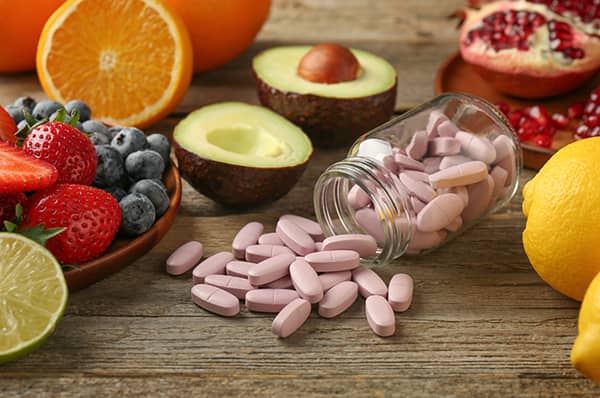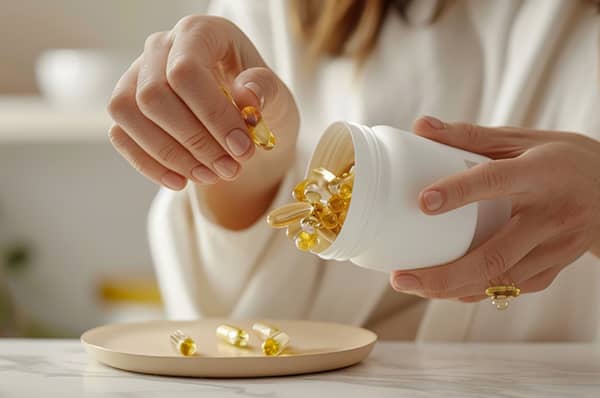Food & Food Supplements: Bridging Safety, Quality, and Regulatory Compliance
As one can easily imagine, the food and food supplements industry sits at the intersection of science, public health, and consumer choice. Products in this category must not only meet rising expectations for functionality and lifestyle aspects, but also conform to a complex and rapidly evolving global regulatory landscape. Safety, quality, and transparency form the foundation of responsible product development and market longevity. These principles guide decision-making across formulation, manufacturing, and marketing, ensuring that products meet both regulatory expectations and consumer needs.
This article explores how companies can balance innovation with regulatory compliance by establishing clear frameworks for risk management, labelling, registration, and health claims substantiation across multiple jurisdictions. So let’s do this!
Consumer Demand Is Driving Innovation and Complexity
Consumers today are informed and selective. They want functional products that address specific needs: immune support, gut health, stress reduction, energy, and cognitive performance. They scrutinize labels, demand clean ingredients, and expect proof behind every health-related claim. This trend is especially pronounced in segments such as vegan supplements, probiotics or nutrition in combination with sport workouts, categories that have witnessed double-digit growth in recent years.
As product formats expand to include gummies, sprays, chewing gums, or effervescent tablets, manufacturers must ensure that new delivery systems do not compromise stability, dosage accuracy, or legal classification. With each innovation, the regulatory implications must be revisited. A new formulation or delivery format might shift the product’s legal status or trigger a potential borderline assessment for differentiation from other product categories, such as pharmaceuticals.
Registration and Notification
Too often, companies approach regulatory registration and notification procedures as paperwork to be completed after development and design. This approach is risky. In many jurisdictions, especially in the EU, food supplements must be notified to the competent authority of each Member State before placing them on the market. The procedures, documents required, and timelines vary significantly from country to country.
For example, in Germany, food supplements must be notified by filling out an online application from the Federal Office of Consumer Protection and Food Safety (BVL). Whereas, in France, companies have to register for an online portal where they have to provide numerous details about the food supplement and the individual ingredients it contains. The French authority assesses these entries and actively informs the company whether the product may be placed on the French market.
These variations, even within the European Union, can cause delays or even rejections if companies are unprepared. A coordinated, country-specific regulatory strategy is essential, especially for launches across multiple EU markets. Notification should be treated as a critical interface with the regulator that can affect a product’s marketability, pricing strategy, and legal defensibility.
We strongly recommend considering target markets and individual national requirements as soon as you have a product idea. This is the only way to avoid companies having to make time-consuming and costly adjustments to the product at the end of the development process because they have to learn in the hard way that their products cannot be notified in their planned form in certain countries.
Navigating Health Claims: Evidence, Not Enthusiasm
In the marketing of food supplements, health claims are both powerful and perilous. In the European Union, the use of nutrition and health claims is governed by Regulation (EC) No 1924/2006. Only claims listed in the EU Register of nutrition and health claims may be used, and even then, only under the specific conditions of use. For example, a product may only claim to “contribute to the normal function of the immune system” if it contains at least 80 mg of vitamin C per daily dose.
Unapproved claims, or even slightly altered wording of approved claims, can lead to enforcement action. Claims implying treatment or prevention of disease are expressly prohibited for food, including food supplements. Yet many products still push the boundary, especially when marketing to consumers directly online or through influencers. Regulatory authorities are now increasingly using AI-based monitoring systems to identify non-compliant online marketing.
To avoid risk, companies should build a claims database early in product development, mapping potential health claims to their scientific bases, required nutrient levels, and legal status in each target market. In some cases, companies may pursue a proprietary health claim via Article 13.5 of the regulation, which requires a full EFSA scientific opinion and can take several years, but allows for stronger market differentiation if successful.
In markets like the US, the regulatory approach is different but still strict. Claims are regulated by the FDA and FTC. While structure/function claims are permitted under DSHEA, they must be truthful, not misleading, and supported by competent and reliable scientific evidence. The phrase “This statement has not been evaluated by the Food and Drug Administration...” must also appear prominently. Companies have faced warning letters and class actions for noncompliance in this area.
Novel Foods and Borderline Products
As companies look for differentiation, many are turning to lesser-known or exotic ingredients such as mushroom extracts, algae-based oils, peptides, CBD derivatives, or fermented botanicals.
For example, a company asked for consultation to determine the status of cacao pulp juice, which does not sound very unusual or even unsafe at first. However, since no evidence that this ingredient was used for human consumption to a significant degree within the EU before 15 May 1997, it was officially classified as “Novel Food” by Belgium authorities and falls under EU’s Novel Food Regulation (EU) 2015/2283.
If a product contains a novel food ingredient, it cannot be legally sold in the EU without prior authorization. This process is lengthy, requiring a complete dossier including toxicological, nutritional, and compositional data.
Even outside the EU, borderline issues persist. A collagen peptide supplement marketed in the EU as a food might be classified as a drug in Brazil if the formulation or health claim crosses certain thresholds. Misalignment of classification can lead to customs holds, recalls, or penalties. This is especially relevant when marketing combination products that might resemble a medical device or therapeutic product.
Quality Assurance and Risk Minimization
Ensuring consistent product quality is not just a manufacturing issue but a regulatory one as well. EU regulations require compliance with food hygiene and HACCP principles. GMP (Good Manufacturing Practice) is common practice in many countries and highly recommended, especially for export markets.
Beyond manufacturing controls, companies should maintain full product dossiers that include batch records, certificates of analysis, label versions, stability data, and supplier audits. In the event of a complaint, inspection, or market surveillance action, having a complete and well-organized dossier can prevent escalation.
Moreover, serious adverse events, even for food supplements, must be reported in several countries. Companies should have a post-market surveillance system in place to track and respond to quality issues or health concerns, not just for compliance, but for consumer safety and brand protection.
The Strategic Value of Compliance
Regulatory compliance in the food and food supplements sector plays a central role in business operations and product strategy. Companies that invest in robust regulatory systems, transparent sourcing, and scientific substantiation enjoy more stable growth, fewer recalls, and stronger consumer trust.
Global expansion amplifies the need for regulatory coordination. What is acceptable in one market may require reformulation or claim modification in another. Without expert guidance, a company may waste significant time and resources navigating conflicting advice or redoing submissions.
Ultimately, successful companies embed compliance into every aspect of the product lifecycle, from ideation and R&D to marketing and post-market monitoring. This integration supports faster time-to-market, protects against enforcement risk, and allows brands to speak confidently to both regulators and consumers.
Laying the Groundwork for Sustainable Success
In an industry that thrives on innovation and lifestyle positioning, the strength of a company’s regulatory infrastructure is a critical success factor. Safe, high-quality, and transparent products are not only more compliant, they are more resilient in the marketplace. By aligning scientific diligence with clear regulatory foresight, companies can ensure that their innovations reach consumers legally, ethically, and sustainably.




